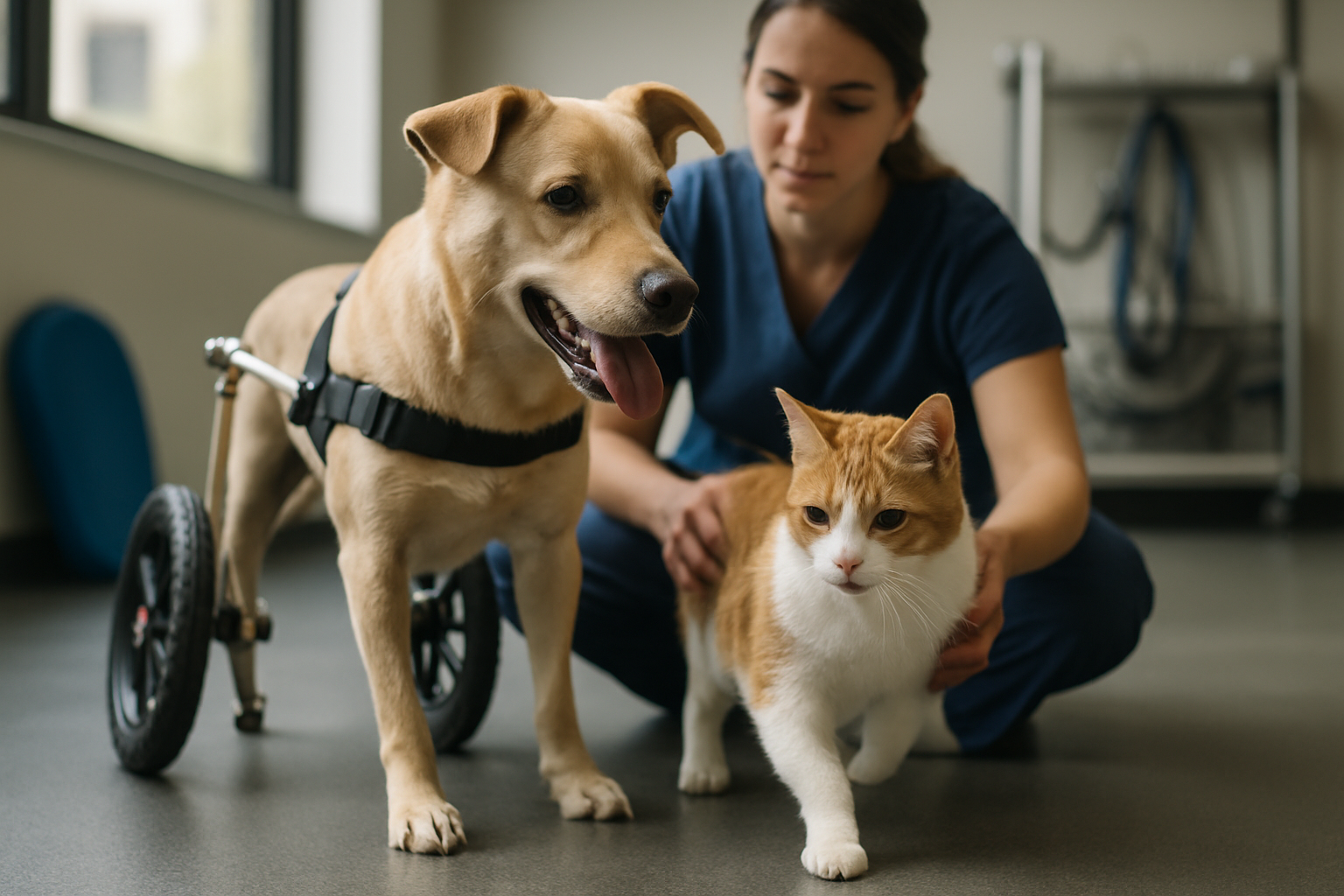Discover the Ultimate Pet Health Guide for Seniors
As our beloved pets age alongside us, their healthcare needs become increasingly important. For seniors who cherish the companionship of their furry friends, understanding how to maintain optimal pet health while managing healthcare costs becomes essential. This comprehensive guide explores how pet insurance can provide peace of mind and financial protection while ensuring your aging companion receives the best possible care.

Caring for a pet in your senior years offers tremendous emotional and health benefits. However, as both you and your pet age, healthcare considerations become increasingly important. Senior pet owners often face unique challenges when managing their pet’s health needs alongside their own changing circumstances. This guide explores essential aspects of pet healthcare for seniors, with special focus on how pet insurance can provide valuable support during these golden years.
How Pet Insurance Benefits Senior Pet Owners
Pet insurance can be particularly valuable for seniors living on fixed incomes. As pets age, they typically require more frequent veterinary care and may develop chronic conditions similar to their human companions. A comprehensive pet insurance plan helps manage these unexpected expenses, allowing seniors to provide necessary care without financial strain.
Many pet insurance providers offer specific coverage options tailored to senior pets, including preventive care packages, dental coverage, and management of age-related conditions. These specialized plans acknowledge that older pets have different healthcare needs than younger animals and provide appropriate coverage options.
For seniors on Medicare or fixed retirement incomes, pet insurance creates a predictable monthly expense instead of potentially devastating emergency vet bills. This predictability makes budgeting easier and provides peace of mind that financial constraints won’t limit necessary pet care.
Key Health Considerations for Senior Pets
Senior pets require more frequent veterinary check-ups, typically twice yearly rather than annually. These regular examinations help detect age-related conditions early when they’re most treatable. Common health issues in aging pets include arthritis, dental disease, vision and hearing loss, cognitive dysfunction, and organ-related problems.
Nutrition becomes increasingly important as pets age. Senior pets often benefit from specialized diets that support joint health, maintain appropriate weight, and address specific health conditions. Additionally, maintaining an appropriate exercise routine helps senior pets stay mobile and mentally engaged while preventing obesity.
Mental stimulation is equally important for aging pets. Interactive toys, gentle training exercises, and consistent routines help maintain cognitive function. Many seniors find that the routine of caring for their pets provides structure and purpose to their own days as well.
How Seniors Can Choose the Right Plan for Their Pet
When selecting pet insurance, seniors should consider their pet’s age, breed, and existing health conditions. Many policies have age restrictions for initial enrollment, so it’s important to research which companies offer coverage for older pets. Some providers specialize in senior pet coverage or offer special considerations for older animals.
Compare deductibles, reimbursement percentages, and annual or lifetime limits when evaluating plans. Higher deductibles typically mean lower monthly premiums but more out-of-pocket expenses when filing claims. Similarly, reimbursement percentages (typically 70-90%) and coverage limits directly affect how much financial protection a plan provides.
Review coverage exclusions carefully, particularly regarding pre-existing conditions, breed-specific issues, and waiting periods. Some policies exclude certain hereditary conditions common in specific breeds, while others may cover them after a waiting period. Understanding these details helps prevent surprises when filing claims.
Common Pet Insurance Options for Seniors
Pet insurance plans typically fall into several categories that seniors should understand before making a decision. Accident-only plans cover injuries from unexpected incidents but not illnesses or routine care. These plans are typically the most affordable but offer limited protection.
Accident and illness plans cover both injuries and disease, including cancer, infections, and digestive problems. These comprehensive plans provide broader protection but come with higher premiums. For seniors with aging pets, this level of coverage often provides the most peace of mind.
Wellness riders or preventive care add-ons cover routine care like vaccinations, dental cleanings, and annual exams. While these increase monthly premiums, they can make budgeting for preventive care more manageable and encourage regular veterinary visits.
Pet Insurance Comparison for Senior Pet Owners
| Provider | Senior Pet Acceptance | Deductible Options | Reimbursement Rates | Notable Features |
|---|---|---|---|---|
| Pets Best | No upper age limit | $50-$1,000 | 70%, 80%, 90% | Specific plans for older pets, direct vet payments |
| ASPCA Pet Health | No upper age limit | $100-$500 | 70%, 80%, 90% | Coverage for hereditary conditions, multi-pet discount |
| Embrace | Accepts new pets up to 14 years | $200-$1,000 | 70%, 80%, 90% | Diminishing deductible program, dental coverage |
| Healthy Paws | Accepts new pets up to 14 years | $100-$500 | 70%, 80%, 90% | No caps on payouts, quick claims processing |
| Nationwide | Varies by plan | $250 | 90% with some plans | Exotic pet coverage, wellness options |
Prices, rates, or cost estimates mentioned in this article are based on the latest available information but may change over time. Independent research is advised before making financial decisions.
Special Benefits for Seniors with Pet Insurance
Many pet insurance providers offer specific benefits that are particularly valuable to senior pet owners. Multi-pet discounts can provide significant savings for seniors with multiple animal companions. Some companies also offer discounts for policies paid annually rather than monthly, which can reduce overall costs.
Some plans include coverage for alternative therapies like acupuncture, hydrotherapy, and physical therapy—treatments that can be especially beneficial for managing chronic conditions in aging pets. Additionally, certain providers offer 24/7 veterinary helplines, allowing seniors to consult with professionals about minor concerns without leaving home.
For seniors with mobility challenges, some pet insurance companies now offer telehealth services or partnerships with mobile veterinarians who make house calls. These services can be invaluable for seniors who find it difficult to transport their pets to traditional veterinary clinics.
As both seniors and their pets navigate the aging process together, pet insurance provides an important safety net that ensures healthcare decisions can be made based on what’s best for the pet rather than financial constraints. With the right coverage in place, the special bond between seniors and their animal companions can continue to flourish through the golden years.




